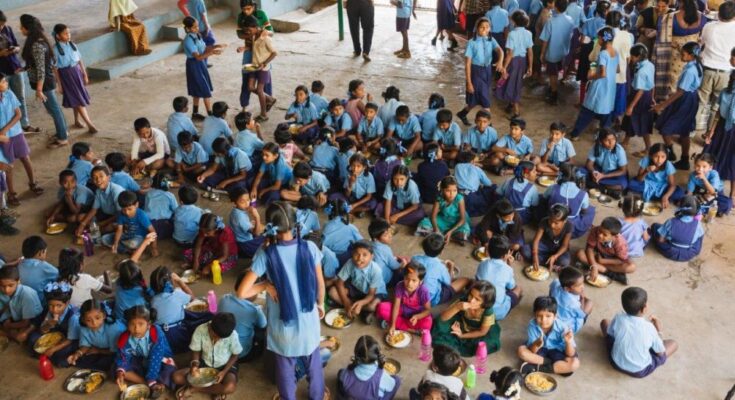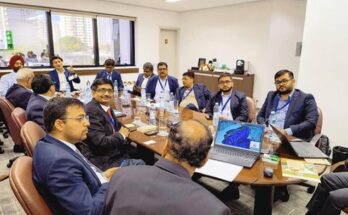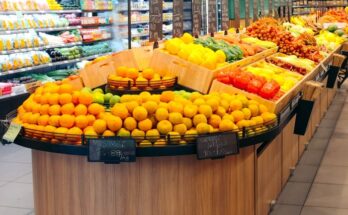Berlin/Rome – In the wake of COVID-19 pandemic and climate change, QU Dongyu, Director-General, Food and Agriculture Organization of the United Nations (FAO) today addressed the Agriculture Ministers’ Conference in Berlin underscoring the importance of continued global cooperation and bringing in innovation to find new ways to strengthen the sustainability of agri-food systems, and outlined FAO and its partners’ role in this.
Qu reinforced FAO’s readiness to support the world in a “new path”, particularly through FAO’s COVID-19 Response and Recovery Programme, Hand-in-Hand Initiative and its Geospatial Platform, and the One Health approach. Concerning the latter, FAO launched a new report on the opportunities for innovation in livestock systems this week at the conference, formally called the Global Forum for Food and Agriculture (GFFA).
The week-long GFFA brought together over 90 ministers from all over the world, together with high-level representatives of international organisations. The final communique adopted on Friday calls for impetus for climate action, response to COVID-19, and preventing future pandemics – the overarching theme of this year’s forum.
The FAO Director-General, speaking in a session chaired by the German Federal Minister of Food and Agriculture, Julia Klöckner, highlighted the key conclusions of the FAO high-level panel during GFFA on ‘How innovation can help strengthen the sustainability of food systems and prevent future pandemics’.
“The key point that emerged from our discussion was that the pandemic gave impetus to innovation: we should work together to keep up this momentum,” Qu noted.
He mentioned several examples for innovation in practice, as presented in the panel, related to policy measures, multi-partner initiatives, digital tools, as well as new business models, including agricultural information systems and e-commerce developed to improve digital infrastructure in rural areas.
Referring to the request made to FAO at the previous GFFA, Qu updated the ministers on FAO’s work on the establishment of the International Platform for Digital Food and Agriculture which has already been approved by FAO’s governing Council.
Qu’s words resonated with the message of UN Secretary-General António Guterres to the conference, who called for “bold action” to improve global agri-food systems, and invited all countries to join the upcoming UN Food Systems Summit to inspire action towards the vision of a healthy planet and healthy diets.
Also speaking during the session was Janusz Wojciechowski, the Commissioner for Agriculture of the European Commission; and David Beasley, Executive Director of World Food Programme of the UN. Director-General Qu, Minister Klöckner, Commissioner Wojciechowski were later joined by Patricia Espinosa, Executive Secretary of the United Nations Framework Convention on Climate Change (UNFCCC) at the GFFA closing press conference.
The final communiqué – a call for action
Today, agriculture ministers in a record number signed up for a common political vision through the unanimous adoption of the communiqué whose messages are expected to feed into further international agricultural policy discussions.
The document calls upon countries and development organisations to take action in responding to the COVID-19 pandemic, preventing further pandemics, and on climate change mitigation and adaptation.
Recognising the essential role of the food and agricultural sector, ministers pledged support to farmers, particularly smallholders, for sustaining their activities and livelihoods during the pandemic, and to assist their recovery afterwards and help enhance their resilience.
The communiqué reaffirmed commitment to the 2030 Agenda and the Sustainable Development Goals (SDGs), in particular SDG-2 to end hunger, as well as to implement FAO’s voluntary guidelines supporting the right to adequate food in the context of national food security.
Ministers pointed at the critical need for innovation in the sustainable increase of production, and encouraged sustainable solutions that include new technologies and innovative practices, in line with the principles of the FAO framework for sustainable bioeconomy.
Echoing the FAO Director-General’s earlier messages at the GFFA, the manifesto supports the improvement and broadening of current international collaboration under the One Health approach, in particular the FAO-OIE-WHO information systems for early warning, transparent reporting, and investigation of animal and zoonotic disease outbreaks.
 Agriculture Post is now on Telegram. Click here to join our channel and stay updated with the latest news and updates on agriculture.
Agriculture Post is now on Telegram. Click here to join our channel and stay updated with the latest news and updates on agriculture.




